Horses are sacred animals that have been owned by humans for many centuries. So much so that it has become a hobby to own and ride horses for pleasure and fondness. Many people like to own horse barns and take care of horses. Horses are loyal and combatant animals; that’s why humans show special affection and attachment towards them.
Hence, as a horse owner, it is obligatory to know about your animal’s nutritional requirements. It is human nature to take care of the things you like, so, if you are also a horse owner and worried about the nourishment of your horse and have questions in your mind like ‘can horses eat bread?’ we’ve got your back.
In this blog, we are going to talk about whether horses eat bread. We will cover all the details about bread intake by horses. Keep reading the complete guide to know the answer to your question.
Nutrients in Bread
A horse’s stomach is quite different from a human’s stomach. It would be mistreatment to feed your horse only from your kitchen. If we talk about plain bread, it usually contains wheat flour, water, yeast, and salt. Bread is rich in calories but deficient in nutrients. Granted, it can taste great to humans who get their nutrients from several sources and in a variety of ways.
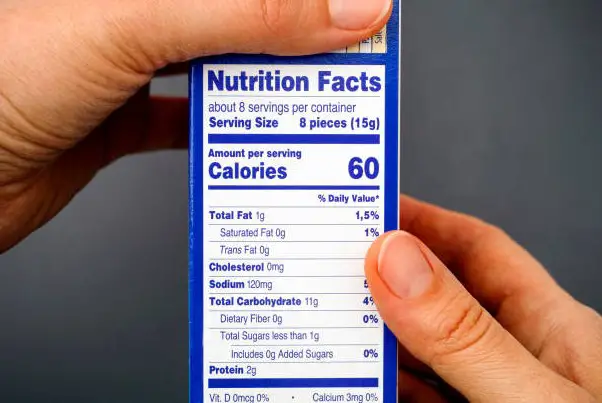
However, it hardly fulfills the nutritional requirement of your equine. Bread doesn’t contain any toxic elements but, as wheat is full of starch, it will create a nutritional imbalance in the horse’s body. Wheat has a large amount of phosphorus but is deficient in calcium, vitamin A, D, E, proteins, etc.
Can Horses Eat Bread?
Horses can eat bread occasionally. It depends on your horse whether it likes bread or not because bread lacks an appealing aroma. Horses usually like food that smells good.
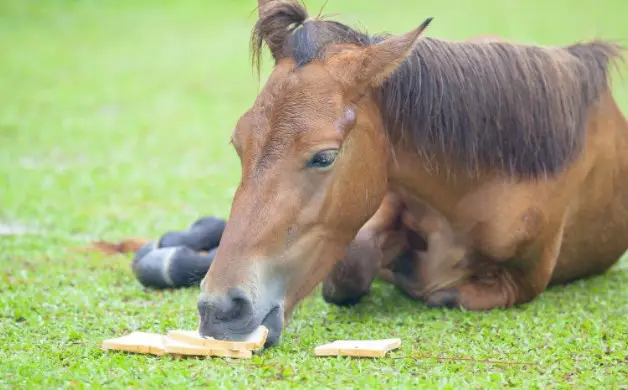
But a caretaker should keep in mind that once the bread or any other baked material is ingested, it will change into a doughy material inside the stomach that is not good for the digestive system. It can also cause colic by blocking the gastrointestinal system if it is given in excess.
Why Shouldn’t Bread be a Regular Diet?
Bread is rich in calories, and calories are essential for growth, normal functioning of metabolism, and exercise. Carbohydrates are a great source of calories for your equine, but other biological compounds like proteins, vitamins, and minerals are also important for the body’s normal functioning. Starch is broken down to glucose in the small intestine and causes a “sugar rush” in the horse’s blood that can cause metabolic disturbances like insulin resistance. Phosphorus causes the absorption of calcium and, as a result, deficiency of calcium too. This is the reason that bread shouldn’t be a regular diet for horses. The following is a list of foods that cannot be given to horses:
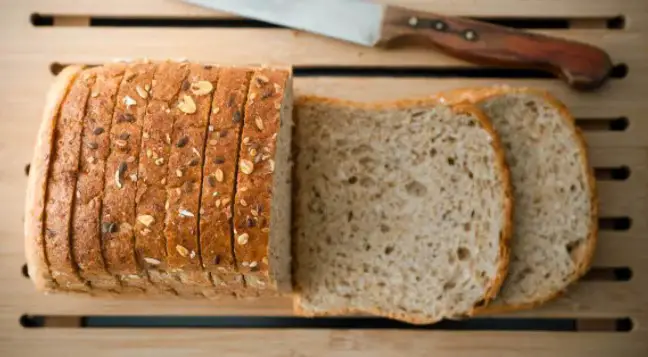
- Chocolate
- Avocado
- Pitted fruits
- Potatoes and other nightshades
- Yogurt or other milk products
- Bread
- Treated lawn clippings
Health Risks Related to Excess Bread Feeding
There are many supplements and treats available on market to feed horses but still, there are horse owners who are negligent and feed their horses bread on a regular basis or in excess. Bread is rich in starch and can cause the following health conditions if taken in excess:
Laminitis
Laminitis is a health condition that occurs when a horse is obese, overweight, or stressed. Laminae connect the hoof wall with coffin bone, if laminae are disturbed, inflamed, or damaged it results in Laminitis. If bread is being fed in excess to the horse, it will make the horse obese and overweight and eventually weaken the bones.
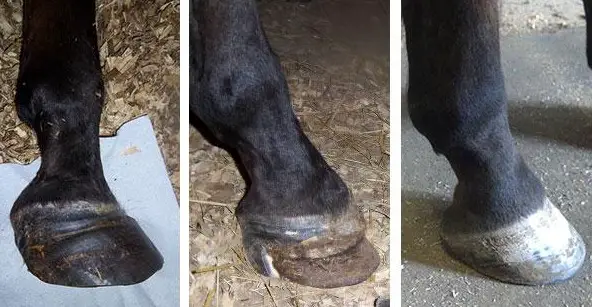
Equine Rhabdomyolysis
It is a condition caused by the excess of starch. If bread is fed to the horse for a long time, it can increase the glucose level in the blood resulting in the obliteration of the horse’s muscle tissue. This can be recognized if the horse shows the following symptoms:
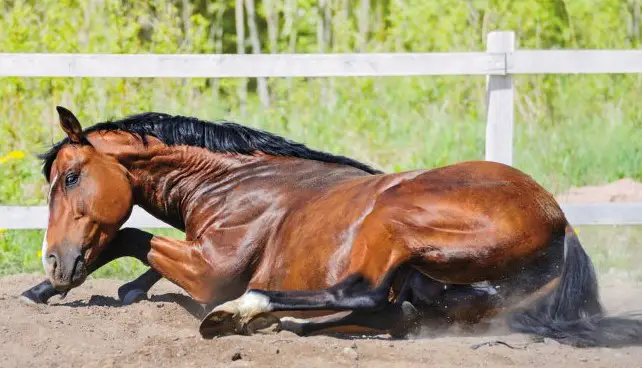
- Fatigue
- Inability to move
- Respiratory problems
- Over sweating
- Stiffness
Colic (Abdominal Pain)
Bread has starch that is broken down to glucose in the small intestine. But if it reaches the large intestine, starch is fermented and helps bacterias to grow as a result excess lactic acid is produced causing abdominal pain referred to as Colic.
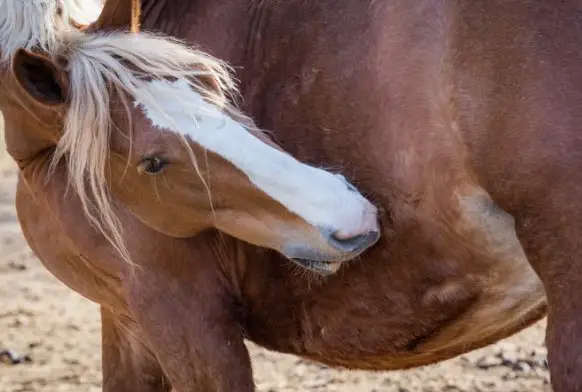
Conclusion
If you own a horse, you should keep a check on their health and nutritional requirements. It’s up to the individual horse to decide if they like bread. Bread is sometimes given to lean horses to help them gain weight. Bread is not toxic to the horses but it is not a good idea to feed bread to horses regularly. High content starch can be problematic for the digestive system of the horses, but if bread is given occasionally or in the form of snacks, it should not be a big problem.
